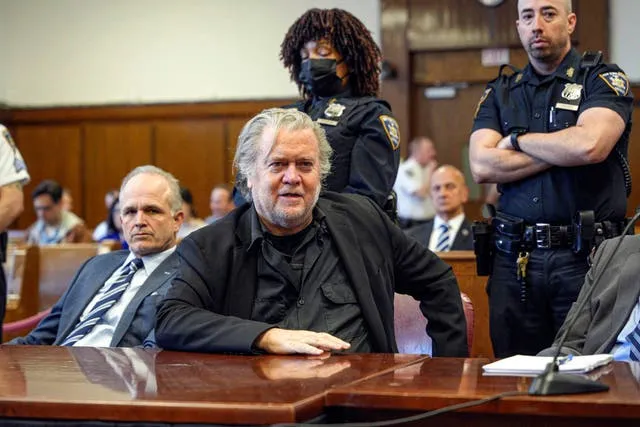The Supreme Court has rejected Steve Bannon’s emergency appeal to delay his prison sentence, dealing a significant blow to his bid to avoid incarceration. Bannon, a longtime ally of former President Donald Trump, had been ordered to report to prison on July 1st to serve a four-month sentence for defying a subpoena from the House committee investigating the January 6th, 2021, attack on the US Capitol.
Bannon’s lawyers had argued that the case raises important issues that should be examined by the Supreme Court, including the validity of the subpoena and whether Trump’s assertion of executive privilege was applicable. However, prosecutors contended that Bannon was no longer a government employee when the subpoena was issued, and that Trump had never invoked executive privilege before the committee.
A jury had found Bannon guilty nearly two years ago of two counts of contempt of Congress, for refusing to testify and provide documents related to his involvement in Trump’s efforts to overturn the 2020 presidential election. US District Judge Carl Nichols had granted Bannon’s request to remain free while he appealed the verdict, but recently ordered him to report to prison after an appeals court panel upheld his convictions.
Bannon is expected to appeal his conviction to the full appeals court, and Republican House leaders have expressed support for intervening in the case, arguing that the January 6th committee was improperly created and that the subpoena Bannon received was invalid. This is not the first time a Trump aide has attempted to delay a prison sentence; Peter Navarro, the former trade adviser, was recently sent to prison to serve a four-month sentence for contempt of Congress.

Steve Bannon (Via Steve Bannon/Twitter)
Bannon is also facing criminal charges in New York state court, alleging that he duped donors who gave money to build a wall along the US-Mexico border. He has pleaded not guilty to money laundering, conspiracy, fraud, and other charges, and that trial has been postponed until at least the end of September.
The Supreme Court’s rejection of Bannon’s appeal is a significant development in the ongoing legal saga surrounding Trump’s allies and their attempts to defy congressional subpoenas. The court’s decision reinforces the ruling of the lower court and underscores the importance of complying with congressional investigations.
In rejecting Bannon’s appeal, the Supreme Court did not provide a detailed explanation, as is typical in such cases. There were no noted dissents from the justices. The decision marks a significant setback for Bannon and raises questions about the scope of executive privilege and the limits of congressional oversight.
As the legal battles continue to unfold, the case serves as a reminder of the importance of holding public officials accountable for their actions, even those who have served at the highest levels of government.
